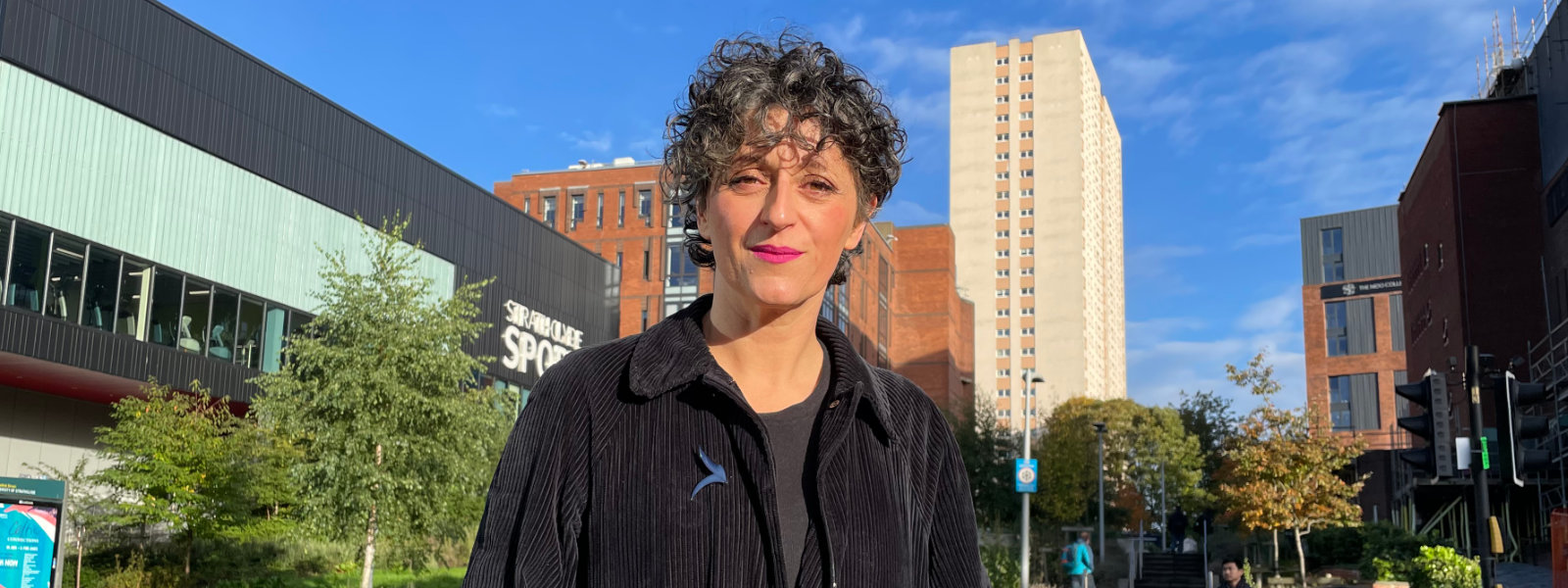
19 January 2023
True crime podcasts, prison documentaries, police procedurals – it can feel like we live in a culture hopelessly obsessed with crime and punishment.
But how close do these portrayals get to examining the true causes and consequences of crime and punishment in our societies? Do media portrayals inaccurately affect our perceptions of crime?
Professor Laura Piacentini is Professor of Criminology within Strathclyde’s School of Social Work and Social Policy. An expert in post-Soviet prisons, criminology, sociology and prison ethnography, she is also Programme Leader for the MSc Criminology & Social Policy.
The MSc, which has run since January 2022, approaches the subject in a way that avoids cliché and stereotype around crime and those who commit crime. The aim is to approach topics like incarceration and penal policy from a critical, global perspective.
In response to the saturation of true crime media, Prof. Piacentini expresses concern about what she sees as the “Netflixisation” of crime – and the cycle of outrage, fear and punishment it helps perpetuate.
“We live in a criminological culture of consumption, fed by algorithms,” she says. “Our question is: why do we have this carceral society and deep cultural addiction to talking about crime and punishment?”
A short history of criminology
Prof. Piacentini traces the birth of the study of Criminology to the birth of capitalism. As the concept of ideal ways of living were increasingly enforced, she says, by a capitalist economic model, so writers and social theorists increasingly sought to better understand and define deviance from these norms.
Early criminologists combined law, psychology, psychiatry and medicine to create scientific models for criminal behaviour. Pioneering Italian criminologist Cesare Lombroso’s 19th century work took the position that criminals were born criminal, and that this criminality could be read in physical characteristics.
By the twentieth century, scholarship had moved away from essentialist arguments and criminological study identified criminal behaviour as a symptom of problematic social structures. This is how Prof. Piacentini and the team on the MSc Criminology & Social Policy continue to approach the subject.
“Crime should be studied as a social problem,” she says. “It’s the structural context that creates crime in the same that the structural context creates poverty.
“When you look at populations of people in jail, you continually see the same issues: [people from] deprived areas, poor performance at school, high levels of neurodiversity, adverse childhood experiences. For women offenders, most have been victims of gender-based violence.”
This, for Prof. Piacentini, points to the value of studying Criminology from a critical perspective and analysing crime through the lens of sociological scholarship. In recognising crime as a symptom of poverty, we better understand the relationship between political decisions, criminal behaviour and responses to those behaviours.
That, says Prof Piacentini, indicates one of problems that can be exacerbated by the culture of criminal consumption – that it can lead to a “carnival of the grotesque” that warps public perception of criminal behaviour and negatively influences penal policy.
Policy and progress
With many Criminology academics in the department having backgrounds in social activism and advocacy, research is strongly motivated by a desire to influence penal reform.
Prof. Piacentini is optimistic about the progress that can be made in this regard. “You’ve got a lot of really good, established academics working for the Scottish Centre for Crime and Justice Research. Others work in community justice, criminal justice, social work.
“Our colleague Dr Beth Weaver, for example, has been instrumental in embedding social enterprise culture [in criminal justice].”
While urging caution around a culture of consumption around crime, Prof. Piacentini does insist that culture can be a rich vein for analysis; that not all elements of popular culture feed inaccurate stereotypes.
“Cultural representations matter. They can enhance our thinking and allow us to better understand alienation. Hip hop for instance can be a useful conduit for analysing the experience of Blackness in an apocalyptic world of acute racism and mass incarceration.”
She also highlights social media as a useful tool for identifying areas of conflict and pain in the criminological debate. She feels it can help students process their feelings about these topics before locating them in the academic knowledge base of evidence, theory and history.
“Everybody’s got an opinion on crime. So that’s a good starting point for us: what is your view?”
The team at Strathclyde
Prof. Piacentini highlights the range of talents and expertise within the team. Dr Weaver is a Professor of Community and Social Justice. Dr Cara Jardine is a Scottish prisons specialist who works with families affected by imprisonment.
Dr Gemma Flynn is a feminist media and culture expert and stand-up comedian. Dr Louise Brangan is an expert on sociologies of punishment whose current research has focused on how Magdalene Laundries in 20th century Ireland mimicked penal culture.
“We are a really ambitious, passionate and compassionate team who all come at it with feminist, critical, socialist understandings of how people who are affected by criminal justice become objectified.
“I would encourage anyone interested to do the course because, fundamentally, the system is structurally problematic. Our ground zero is inequality - and what that inequality looks like when you shine a criminological lens on it.
“That really gives us a lot of ammunition. You will get a no-holds barred course that captures your criminological imagination.”
- Discover other study options in Social Policy.
